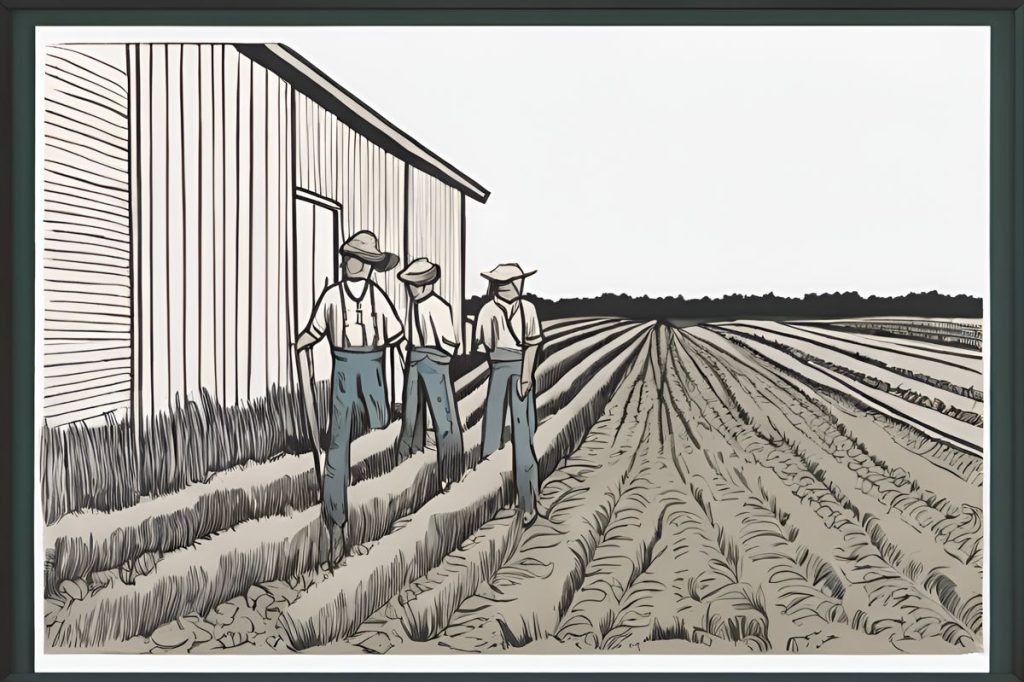The ongoing clash between farmers and the government in northern Cyprus over imported meat has reached a stalemate as both sides remain steadfast in their positions. Despite protests and negotiations, the issue persists, with farmers fearing for their livelihoods and the government standing firm on its decision to import meat to control prices and ensure quality.
Why are farmers and the government in northern Cyprus at odds over imported meat?
Local farmers in northern Cyprus are protesting the government’s decision to import meat, fearing it will threaten their livelihoods. The government insists on imports to control prices and ensure meat is disease-free, but farmers and union leaders are not backing down, resulting in an impasse with no current resolution.
The Onset of the Dispute
The tranquility of trade was disrupted when a decision to import meat internationally ignited protests among local farmers in the northern part of Cyprus. For over ten days, voices have risen in unison against this move. The crux of the issue? A push by the local ‘government’ to bring in meat from abroad has been met with staunch opposition, as many fear it could undermine the livelihoods of the domestic farming community.
During a pivotal meeting on Tuesday, aimed at finding middle ground, lines were drawn as neither the farmers nor the ‘government’ officials showed any signs of yielding. Key figures such as ‘Agriculture Minister’ Huseyin Cavus and two other ministers joined the discussion with union leaders at the ‘Agriculture Ministry’. Despite the dialogue, consensus remained elusive.
The Stance of Both Sides
The impasse was palpable as the ‘government’ reiterated its stance post-meeting. Proclaiming a “good faith” negotiation, officials declared their openness to future discussions. Yet, they held firm to their import strategy, with Cavus announcing the imminent arrival of meat shipments from the Netherlands—chosen for their disease-free status.
This meat, soon to retail, was bound by new regulations for its storage at sub-zero temperatures, and supermarkets were mandated to install backup generators. These measures, alongside price control policies lasting until mid-June, manifested the ‘government’s’ resolve. In contrast, union chairman Mustafa Naimogullari confirmed the continuation of protests and revealed a drastic step: a month-long halt on livestock sales.
The Wider Implications
The decision to import meat has ramifications that reach beyond local markets and into international relations. The ‘government’ has also eyed Spain as a potential source of imported meat, forecasting a drop in retail prices. However, this approach drew skepticism from the opposition within the ‘parliament’, where questions arose regarding why the Republic of Cyprus, adhering to EU livestock and meat standards, was not considered a viable supplier.
The current stipulations of the Green Line regulation, which restricts animal product movement between the two sides, adds another layer of complexity. Despite prohibitions, instances of individuals facing penalties for attempting to cross with such goods underscore the tensions caused by soaring meat prices in the north.
A Local Journalist’s Perspective
Embedded in the tapestry of this controversy is the role of local journalists, who not only report on the unfolding events but also offer unique local insights. Fluent in multiple languages and with a penchant for travel, they bring a global perspective to local stories. Their coverage helps shape public opinion and brings international attention to the disputes that impact the everyday lives of people in this region.
Why are farmers and the government in northern Cyprus at odds over imported meat?
Local farmers in northern Cyprus are protesting the government’s decision to import meat, fearing it will threaten their livelihoods. The government insists on imports to control prices and ensure meat is disease-free, but farmers and union leaders are not backing down, resulting in an impasse with no current resolution.
What is the current status of the conflict between farmers and the government in northern Cyprus over imported meat?
As of now, the conflict between farmers and the government in northern Cyprus over imported meat has reached a stalemate. Despite protests, negotiations, and discussions, both sides remain steadfast in their positions with no resolution in sight. The government is determined to import meat to control prices and ensure quality, while farmers fear for their livelihoods and oppose the imports.
What steps has the government in northern Cyprus taken in regards to imported meat?
The government in northern Cyprus has announced the imminent arrival of meat shipments from the Netherlands, chosen for their disease-free status. The meat is bound by new regulations for storage at sub-zero temperatures, and supermarkets have been mandated to install backup generators. Price control policies have also been put in place, lasting until mid-June, showcasing the government’s commitment to the import strategy.
What are the wider implications of the decision to import meat in northern Cyprus?
The decision to import meat in northern Cyprus has not only impacted local markets but has also raised international relations concerns. The government is looking at Spain as another potential source of imported meat to potentially lower retail prices. However, questions have been raised within the parliament about why the Republic of Cyprus, with its adherence to EU standards, was not considered as a supplier. The Green Line regulation, restricting animal product movement between the two sides, adds another layer of complexity to the situation.

